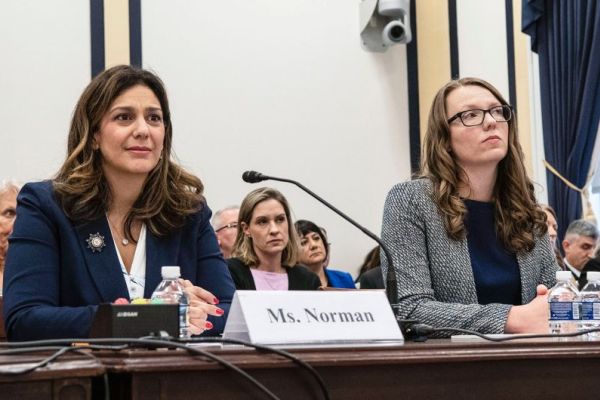
Navy hires special education attorneys as part of pilot program for families
| EFMP in the News, In the News
By ROSE L. THAYER | STARS AND STRIPES
Published: December 14, 2020
AUSTIN, Texas – The Navy has hired two special education lawyers as part of a three-year pilot program to expand support for service members enrolled in the Exceptional Family Member Program.
The two civilian attorneys, who have a background in special education law, began in November to assist families trying to get services for special needs children through federal laws put into practice differently in school districts across the country, said Lt. Cmdr. Nick Stampfli, legal assistance department head at the Legal Services Office for Mid-Atlantic Region. Navy families can find themselves at a disadvantage when it comes to special education because frequent moves mean they are regularly entering new school districts with different rules and resources.
“We just really want to level the playing field with what a family that doesn’t move often gets,” he said. “We do see a direct impact on readiness when a family is taken care of and sailors are not worrying about a problem at home, especially a problem with their kids. It’s much easier to deploy.”
The Defense Department’s Exceptional Family Member Program, known as EFMP, is a mandatory enrollment program run by the service branches for military members with an immediate family member, usually a child or spouse, who has special medical or educational needs. The program is meant to assist during the orders assignment process to make sure service members are sent to locations where they can access necessary resources.
The Navy has 24,046 family members enrolled in the program, according to the Pentagon. Since 2016, the program has expanded and engagement between Navy staff and families has tripled, said Ed Cannon, director of Navy Installation Command’s Fleet and Family Readiness, which oversees the EFMP.
Families in the program also receive case management services to help them access necessary resources, localized information and referrals, individualized service plans and support while coordinating with local school districts. EFMP families can also receive consultations about Social Security benefits, Medicaid assistance and guardianship, to help with continuity of care during any life-changing events.
“We know it’s going to take funds, and it’s going to take people, but most importantly, it’s going to take a complete focus to make sure … we are using those resources wisely and looking at where that demand is most critical,” Cannon said.
Legal assistance for special education in public schools is an area where families have asked for help, he said.
The three-year pilot program is underway at Navy Regions Mid-Atlantic, headquartered at Norfolk Naval Station, Va., and Southwest, headquartered in Naval Base San Diego, Calif.
The new attorneys will assist families with special education program eligibility assessments, helping them gather and present the evidence of their children’s needs for individualized education plans and other related services, such as speech therapy and special transportation needs. In certain cases, the attorneys may attend meetings with school staff members to advocate for their clients. They will also assist if court intervention is required.
The attorneys will also provide training for families and develop strong relationships with regional legal aid and pro bono networks and local court conservatorship and guardianship clinics. They also plan to routinely review client files to ensure school compliance and host informational town halls to help families be their own advocates.
Some of this work as already begun, Cannon said.
A higher level of support
By looking closely at the budget, which has grown by about $5 million over the past five years, and finding some efficiencies, Cannon said the Navy was able to find the funding for the attorneys, for two regional special education liaisons for each coast, and for 10 new case liaisons to assist families up until an attorney is needed. Four liaisons are in Norfolk, and six in the southwest.
“It really is just adding that extra support level,” Cannon said.
While the liaisons work for Navy Installation Command, the attorneys report to the Office of the Judge Advocate General. Together, they hope to help those families facing challenges.
“Every system works a little bit differently,” said Alexandra Little, the new EFMP attorney in Norfolk. She has worked in Hampton Roads for much of her legal career and said it’s important to have help from someone with local knowledge.
“It’s hard enough when a special education student is making a transition from elementary school to middle school to high school, but to do so in whole different setting with greater frequency is very challenging,” she said. “Most families that go up to bat are looking at a well-funded school system that has resources and institutional knowledge that gives them an advantage. We will make sure families have the opportunity for legal help and to advocate as best they can for their particular family member.”
The pilot program was born out of feedback from Navy families and is loosely modeled after a similar program for the Marine Corps’ EFMP, Stampfli said.
Families “were running into issues where they thought they might need legal support dealing with things like school districts and individualized education plans,” he said. “We were hearing from EFMP families that they found that to be a valuable resource and helped maintain readiness as they moved from duty station to duty station and were dealing with new a school district who doesn’t know them.”
While there is a desire to continue the program beyond three years, Stampfli said the pilot will allow the Navy to review progress and determine costs, staffing and the locations that need the most legal support.
“It’ll be a matter of measuring successes or failures, if there are any, and figuring out how should be applied enterprise wide,” Cannon said.
Congressional intervention
The announcement of the Navy’s pilot program comes as Congress looks to mandate the employment of special education attorneys in all service branches.
The final version of the National Defense Authorization Act for fiscal year 2021 requires that the secretary of each military department provide a dedicated EFMP attorney who specializes in education law at each military base that has a large number of military families with special needs and has historically not supported those families.
The final version of the bill was passed Friday by the Senate. It will move on to President Donald Trump, who has threatened to veto the bill.
Michelle Norman, a Navy spouse and advocate for EFMP families, said she is proud that the Navy launched the pilot program without waiting for the official mandate to hire the attorneys.
“They are being proactive and not reactive,” she said. “Providing the pilot program and these special education attorneys is just one part of their vision, but it’s the most important step to ensure that the military’s most vulnerable children are provided with the minimum education levels” required by federal law.
The pending NDAA also creates standardization among the service branches for the EFMP, something that House lawmakers discussed in February during the first congressional hearing on the program in about a decade. Norman, Army spouse Austin Carrigg, and leaders of the EFMP for the Defense Department and service branch testified before the House Armed Services Committee subpanel on military personnel.
Across all service branches, about 142,951 family members are enrolled in the EFMP, but the hearing found that the resources and support available between the Army, Navy, Air Force and Marine Corps vary widely.
Carrigg, who advocates primarily for the health-care part of EFMP, worries that the NDAA is too vague and could allow the military to skirt Congress’s intent. The bill says that standardization only has to be done “to the extent practicable.”
“It’s going to be very easy to say it’s not practicable to do this or do that,” she said. “I would much rather have the language say Congress wants to standardize EFMP and then give a branch to standardize under. I think most people would give you the Marine Corps.”
The Marine Corps program was lauded during the hearing as the best, in part because it provides special education attorneys to families, but also because it requires staff check-in with families on a quarterly basis.
Jackie Nowicki, director of K-12 education for the Government Accountability Office, testified during the hearing about a 2018 report she authored that found that while the Defense Department left implementation of EFMP to the service branches, it lacked standardization or performance measurement structure to ensure that the program was working properly for all service members.
The three recommendations of Nowicki’s report had not been addressed by the Defense Department as of June, she said. The recommendations aim to create better performance evaluation among the services and improve variabilities in support, to include staffing.
While the Marine Corps has about 11,000 families enrolled in EFMP, it has 107 full-time staff members dedicated to the program, according to testimony during the February hearing. The Army has 119 employees for more than 54,000 families.
“These programs and resources that are meant to support families, they don’t all work the same way across the services,” Nowicki said. “We heard about some pretty significant variability in the level of family support that folks are getting from installation to installation, but also across the services.”
The promise of future support
Despite a pledge “to be hawks on this” from Rep. Jackie Speier, D-Calif., chairwoman of the military personnel subpanel, not much has changed since the hearing, which had so many people in attendance that officials set up an overflow viewing area. The subpanel members promised to hold town halls with EFMP families and to bring back program officials every three months for updates on progress.
Speier’s office blamed the coronavirus pandemic — which took hold of the U.S. just one month after the hearing and continues to inhibit normal activity — for a delay.
Norman said she remains “cautiously optimistic” that the EFMP will continue to adapt to better meet the needs of families.
“There are still more initiatives we would like to pursue,” she said. “Folks in the civilian community who have children with special needs, they don’t move often. … Civilian families try to stay in place so they can continue that continuity of care. We’re just not afforded that as a military family.”
Carrigg said she looks forward to engaging with Congress to look at other areas where the program is failing families – most notably regarding the assignment process.
“Our kids are not just their education and they’re not just their health care. We have to find somewhere that can meet all of their needs,” she said.
Thayer.rose@stripes.com
Twitter: @Rose_Lori





Leave a Reply